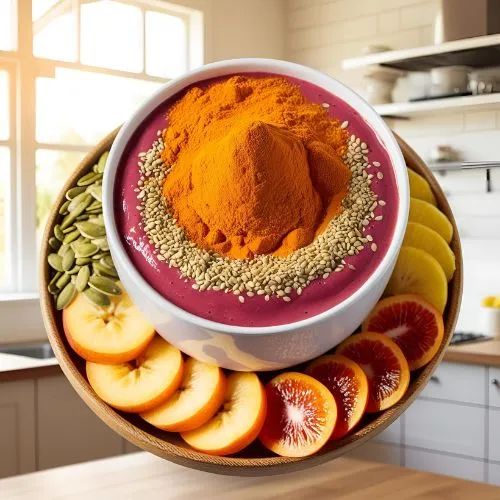What is beta-carotene powder used for?
Beta-carotene powder, also known as E160(a), is a versatile and potent natural compound that has gained significant attention in the health, nutrition, and cosmetic industries. This vibrant orange pigment, found abundantly in many fruits and vegetables, offers a wide array of benefits for human health and well-being. In this comprehensive guide, we'll delve into the various uses of beta carotene powder E160(a), exploring its health benefits, dietary applications, and potential in skincare products.

Health Benefits of Beta Carotene Powder E160(a)
Beta-carotene powder is renowned for its numerous health-promoting properties. As a powerful antioxidant, it plays a crucial role in protecting the body against oxidative stress and supporting overall health. Let's explore some of the key health benefits associated with beta-carotene powder:
Immune System Support
Beta-carotene powder is a precursor to vitamin A, which is essential for maintaining a robust immune system. Regular consumption of beta-carotene can help fortify the body's natural defenses against infections and diseases.
Eye Health Enhancement
The conversion of beta-carotene to vitamin A in the body is particularly beneficial for eye health. It supports the proper functioning of the retina and helps prevent age-related macular degeneration, a common cause of vision loss in older adults.
Skin Protection
Beta-carotene powder acts as a natural sunscreen, helping to protect the skin from harmful UV radiation. It can reduce the risk of sunburn and may contribute to maintaining youthful, healthy-looking skin.
Cognitive Function Support
Research suggests that beta-carotene may have neuroprotective properties, potentially helping to maintain cognitive function and reduce the risk of age-related cognitive decline.
Cancer Prevention
Although further research is required, some studies suggest that a diet high in beta-carotene may lower the risk of certain cancers, especially lung cancer in non-smokers. This antioxidant, found in foods like carrots and leafy greens, is believed to have protective properties, potentially reducing cancer risk when included as part of a healthy diet.

How to Use Beta Carotene Powder in Your Diet?
Incorporating beta carotene powder E160(a) into your diet is a simple and effective way to reap its health benefits. Here are some practical ways to use beta-carotene powder in your daily nutrition:
Smoothie Boost
Add a teaspoon of beta-carotene powder to your morning smoothie for an antioxidant boost. It pairs well with fruits like mango, papaya, and peach, enhancing both the nutritional value and the vibrant color of your drink.
Baking Enhancement
Add beta-carotene powder to your baking recipes for a subtle orange color and a nutritional boost. It enhances muffins, bread, and pancakes without noticeably changing the flavor, providing a healthy, natural source of vitamin A while improving the visual appeal of your baked goods.
Soup and Sauce Enrichment
Mix beta-carotene powder into soups, sauces, and stews to boost both color and nutrition. It works especially well in carrot-based soups or tomato sauces, enriching the dishes with a vibrant hue and an extra dose of vitamin A, all while maintaining the original flavor of your favorite recipes.
Yogurt or Oatmeal Topping
Sprinkle a small amount of beta-carotene powder over your yogurt or oatmeal in the morning. This easy addition enhances the nutrient density of your breakfast, providing a boost of vitamin A and adding a subtle touch of color without altering the taste of your meal.
Homemade Energy Bars
Add beta carotene powder E160(a) to your homemade energy bars or protein balls for an extra nutritional boost. It pairs perfectly with ingredients like nuts, dried fruits, and oats, enhancing both the color and the vitamin A content of your snack, all while maintaining the natural flavors and textures of the mix.
Is Beta Carotene Powder Safe for Skincare Products?
Beta-carotene powder has gained popularity in the skincare industry due to its potential benefits for skin health. Let's explore its safety and efficacy in skincare applications:
Antioxidant Protection
When used in skincare products, beta-carotene powder can provide antioxidant protection against free radicals, potentially helping to prevent premature aging and skin damage caused by environmental stressors.
Natural Coloration
Beta carotene powder E160(a) can give the skin a natural, healthy glow when included in cosmetic formulations. It is commonly found in self-tanning products and bronzers, where it helps enhance the skin's appearance by adding a subtle, sun-kissed tone, all while providing a boost of antioxidant-rich vitamin A for skin health.
Photoprotection
While not a substitute for sunscreen, beta-carotene in skincare products may offer some level of protection against UV-induced skin damage when used in conjunction with proper sun protection measures.
Safety Considerations
Beta-carotene powder is generally considered safe for topical use in skincare products. However, as with any new skincare ingredient, it's advisable to perform a patch test before widespread application, especially for those with sensitive skin.
Formulation Challenges
Formulators should be aware that beta-carotene powder can be sensitive to light and oxidation. Proper packaging and formulation techniques are necessary to maintain its stability and efficacy in skincare products.

Conclusion
In conclusion, beta carotene powder E160(a) is a versatile and beneficial compound with applications spanning health, nutrition, and skincare. Its antioxidant properties, potential health benefits, and safety profile make it a valuable ingredient in various products. Whether consumed as part of a balanced diet or applied topically in skincare formulations, beta-carotene powder offers a natural way to support overall health and well-being. For more information on beta-carotene powder and other natural plant extracts, please contact us at info@yanggebiotech.com.
References
1. Johnson, E. J. (2002). The role of carotenoids in human health. Nutrition in Clinical Care, 5(2), 56-65.
2. Stahl, W., & Sies, H. (2012). β-Carotene and other carotenoids in protection from sunlight. The American Journal of Clinical Nutrition, 96(5), 1179S-1184S.
3. Grune, T., Lietz, G., Palou, A., Ross, A. C., Stahl, W., Tang, G., ... & Biesalski, H. K. (2010). β-Carotene is an important vitamin A source for humans. The Journal of Nutrition, 140(12), 2268S-2285S.
4. Eroglu, A., & Harrison, E. H. (2013). Carotenoid metabolism in mammals, including man: formation, occurrence, and function of apocarotenoids. Journal of Lipid Research, 54(7), 1719-1730.
5. Darvin, M. E., Sterry, W., Lademann, J., & Vergou, T. (2011). The role of carotenoids in human skin. Molecules, 16(12), 10491-10506.

Based on your location and order quantity, you will have the opportunity to receive a limited time free shipping promotion!

Who we are


